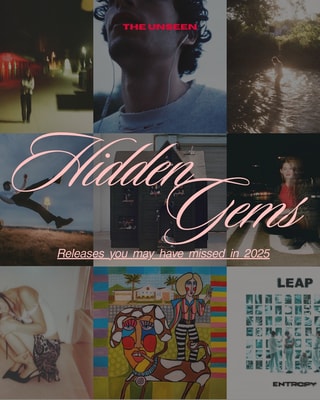Look What You Made Me Do: Taylor Swift’s Version of Belonging, Power, and Payback

Taylor Swift’s re-emergence into the spotlight with the partial release of ‘Look What You Made Me Do (Taylor’s Version)’, which has just dropped in a haunting, visually striking trailer for ‘The Handmaid’s Tale’, is more than just a nostalgic revisit to her ‘reputation’ era. It’s a powerful statement of ownership, defiance, and a long-fought battle against an industry that has too often sought to control her narrative and her work.
Swift started her professional career at the young age of fourteen; she became the youngest songwriter that had ever been signed by Sony/ATV. A year later, she met Scott Borchetta, who persisted to sign Swift for his then newly founded music label, Big Machine Records. With Big Machine Records, she released her first six albums, all of them being highly commercially and critically successful albums, selling millions worldwide and winning countless awards, including her first Album of the Year Grammy at just nineteen. By 2018, Swift had won an estimate of 150 awards across major US and international award shows, including a total of 10 Grammys, cementing her as one of the most influential artists of her generation.
From the outside, Swift’s career looked untouchable: sold-out tours, chart-topping albums, and a global fanbase that grew with every release. She was praised not only for her commercial success but also for her songwriting, with some critics even comparing her to literary legends such as Shakespeare, a rare occasion in a pop industry that often separates the star from the substance. With Swift, every lyric came from her own mind, every melody from her own hand. Her voice filled stadiums, her face fronted billion-dollar campaigns, and her music became the soundtrack to a generation. She was the engine behind her empire. And yet, like so many women in pop, she was never its legal owner.
Swift had spent years quietly negotiating for the rights to her own music. But in 2018, the battle turned public. Without her knowledge or consent, Scott Borchetta sold the master recordings of her first six albums to music executive Scooter Braun, a figure long associated with public antagonism toward Swift. In a matter of hours, Swift not only lost control over the work that had defined her career but was forced to watch it be handed over to someone who had publicly been bullying her for years.
Consequently, Swift made what she described as an ‘excruciating choice’, and left Big Machine Records, sharply criticizing the industry that repeatedly kept prioritizing profits over the personal agency of its artists. A step that would ignite one of the most public and impactful battles over artist rights in modern music history.
“Sometimes, walkin' out is the one thing that will find you the right thing”.
What initially appeared to mark the downfall of Swift’s career quickly became the catalyst for one of the most significant power reclamations in the history of modern music. Refusing to accept defeat, Swift rebuilt her career on her own terms, asserting her right to own the music she created. A new contract with Republic Records under Universal Music Group granted her ownership of all future master recordings, a clause rarely offered in an industry where creative control is often out of reach, especially for women. What should be standard practice remains an exception. Yet, in turning a personal loss into a public stand, Swift single-handedly challenged long-standing norms and shifted the conversation around ownership, autonomy, and the value of female artistry.
However, Swift’s revolution did not end with securing ownership of her future work, instead, it had only just begun. With unwavering determination, she launched a bold and unprecedented mission when she announced that she would re-record her first six studio albums. It was more than just a savvy business move; it was a highly public act of resistance. Each release marked with the label ‘(Taylor’s Version)’ didn’t just offer fans a new recording but also chipped away at the commercial value of the original masters, stripping profit from those who had profited off her voice without her consent. Every re-recorded track turned into a new declaration of autonomy. Her message was unmistakable: this work, this legacy, belongs to her. People like Braun and Borchetta may have her “past frozen behind glass” but her story and her future belong to her.


With the recent unveiling of ‘Look What You Made Me Do (Taylor’s Version)’, the vengeful, sharp-edged anthem from her ‘reputation’ album, Swift enters a new and significant chapter in her journey of reclamation. The song itself, once a pointed response to public betrayals and personal conflict (including highly publicized feuds with Kanye West and President Donald Trump), now takes on a new meaning. It’s a declaration of agency and survival. Swift’s voice, once controlled and commodified, now echoes with full ownership and unyielding power.
Swift has redefined what it means to belong in an industry that was never designed to allow for her to succeed on her own terms. Her rebellion has challenged the norms of artist-label relationships, shining a spotlight on systemic inequalities and inspiring a broader conversation about ownership, respect, and the value of female artistry.
Now, with the partial release of ‘Look What You Made Me Do (Taylor’s Version)' featured in the chilling trailer for ‘The Handmaid’s Tale’, anticipation around the full return of Swift’s reputation era has reignited. Fans are speculating that a formal announcement of ‘Reputation (Taylor’s Version)‘ could arrive as soon as next week’s American Music Awards.
More than just a re-recording, this album represents Swift’s fiercest chapter, born from betrayal, media vilification, and political scrutiny. In a cultural moment where President Donald Trump has resumed public attacks on Swift, the return of her most defiant voice feels not only timely, but necessary.
ARTICLE BY

Michelle
I write about the stories and emotions that shape music, with a special focus on the artists who bring them to life on stage. My work often explores the cultural impact of music through the lens of live performances and pop culture. Highlighting the voices of female artists and their evolving place in the industry is especially important to me, and I love conducting interviews that uncover the artistry and personality behind the music.
DESIGN BY




